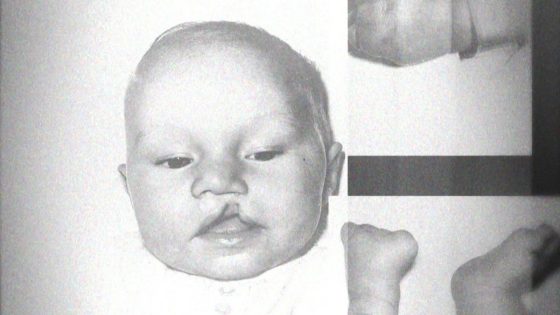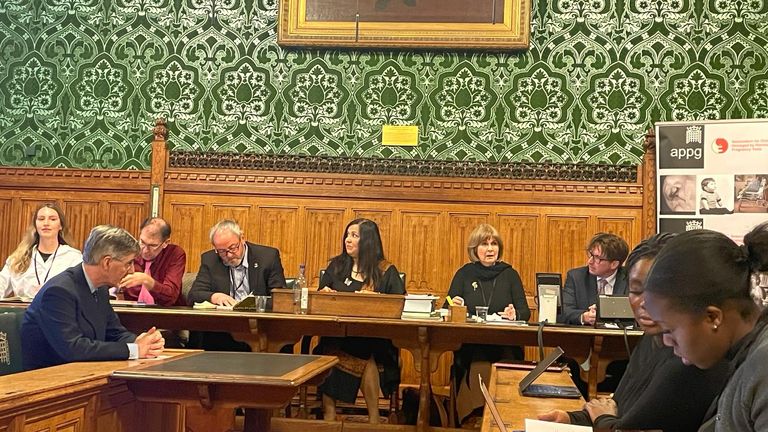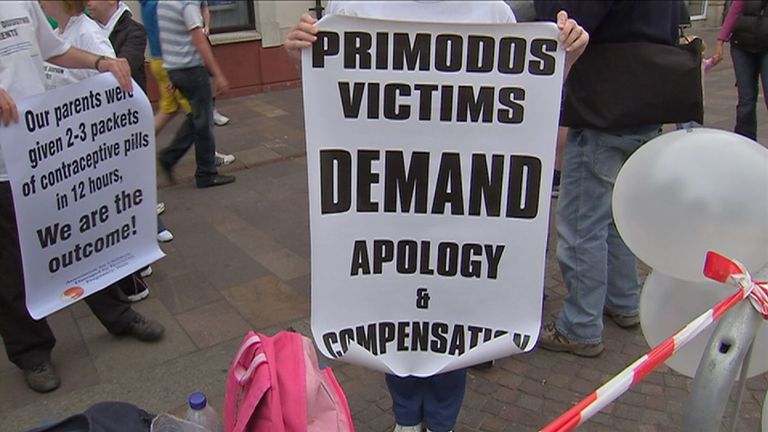MPs are calling for a new review into the dangers of the drug Primodos, claiming that families who suffered avoidable harm from it have been “sidelined and stonewalled”.
MPs said the suggestion there is no proven link between the hormone pregnancy test and babies being born with malformations is “factually and morally wrong”.
A report by the All-Party Parliamentary Group (APPG) on hormone pregnancy tests claims evidence was “covered up” and it is possible to “piece together a case that could reveal one of the biggest medical frauds of the 20th century”.
Around 1.5 million women in Britain were given hormone pregnancy tests between the 1950s and 1970s.
They were instructed to take the drug by their GPs as a way of finding out if they were pregnant.
But Primodos was withdrawn from the market in the UK in the late 1970s after regulators warned “an association was confirmed” between the drug and birth defects.
However, in 2017 an expert working group found there was insufficient evidence of a causal association.
But MPs now claim this report is flawed. It’s hugely significant because the study was relied upon by the government and manufacturers last year to strike out a claim for compensation by the alleged victims.
The APPG refers to research by Sky News which found aspects of the expert working group’s report were altered between the draft and completion.
It says: “Any risk of undue influence was confirmed by Freedom of Information (FOI) requests obtained by Sky News… that revealed a significant number of changes made to the draft version of the report.
“The APPG examined the FOIs and notes with alarm that there have been hundreds of alterations and some amount to changing the meaning of the report. This raises concerns that the final report seeks to mislead.”
A subsequent review by a team led by Baroness Cumberlege also questioned the changes made between the draft and final copy saying the revisions “created different impressions in the mind of the reader”.
When Sky News revealed these changes in July 2020 the Medical and Healthcare Products Regulation Agency (MHRA) told us: “It may not be obvious because of the redactions but the expert working group chair and the Commission on Human Medicines endorsed the changes to the report.”
MPs also note that a team of Oxford academics led by Professor Carl Heneghan obtained the raw data used by the expert working group and produced opposite results, finding “there was an association between Primodos and malformations”, and criticising the approach made by the expert working group.
The MPs also say new studies have added strength to claims of a link including a study in Sweden, revealed by Sky News in December.
They are now calling on ministers to commission an “independent review” review.
Read more:
How Primodos campaigners are ‘running out of time’
Primodos campaigners lose legal bid for damages
Theresa May calls for Primodos campaigners to be ‘treated fairly’
The new report said MPs have “heard countless stories of sorrow and anger after a lifetime spent needlessly and irreparably damaged both physically and mentally”.
It added: “Mothers continue to be burdened by the guilt of having taken the tablets.
“Parents of the affected children, now in their 70s and 80s, are deeply anxious about what will happen to their adult children when they are no longer there for them.”
Yasmin Qureshi, chair of the APPG, said the report calls on the government to “finally do the right thing”.
“The report brings together the crucial parts of the historic research that has exposed the scandal that is at the heart of this campaign. This is the evidence that the government chooses to ignore.
“The report sets out the new scientific evidence which was recently published by a team led by Swedish scientist Professor Danielson.
“It asks, why does the government continue to rely so heavily on the expert working group report, when the findings, and how it came to achieve those findings, are so flawed?”
Marie Lyon, chairwoman of the Association For Children Damaged by Hormone Pregnancy Tests, said: “I await a positive response to our request for a completely independent review of all evidence.”
A Department of Health and Social Care spokesperson said: “We remain hugely sympathetic to the families who believe that they or their children have suffered following the use of hormone pregnancy tests.
“It is right that the government is led by the scientific evidence and the government’s position remains that, after reviewing the available evidence, it does not support a causal association between the use of hormone pregnancy tests and adverse outcomes in pregnancy.
“We are not closing the door on those who believe they have been affected and have committed to reviewing any new scientific evidence which may come to light.”
The German manufacturer of Primodos, Schering, now owned by Bayer told Sky News: “Since the discontinuation of the legal action in 1982, Bayer maintains that no significant new scientific knowledge has been produced which would call into question the validity of the previous assessment of there being no link between the use of Primodos and the occurrence of such congenital anomalies.
“In 2017, the expert working group of the UK’s Commission on Human Medicines published a detailed report concluding that the available scientific data from a variety of scientific disciplines did not support the existence of a causal relationship between the use of sex hormones in pregnancy and an increased incidence of congenital anomalies in the new-born or of other adverse outcomes such as miscarriage.
“The Committee for Medicinal Products for Human Use of the European Medicines Agency supported that conclusion.”
Source Agencies






